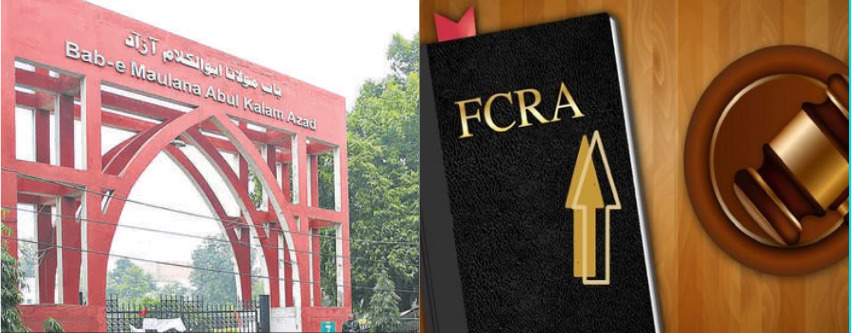Do you know what sets Prime Minister Modi apart from previous Prime Ministers? He is a true democrat, or you may say a Statesman like his predecessors, but when the opposition criticises him for the sake of it, he doesn’t get bogged down. The opposition was trying to corner him after MHA refused to renew the FCRA license of MoC, but the government has gone ahead with his crackdown anyway.
Nearly 6,000 NGOs lost their FCRA license
The FCRA license of 6,000 NGOs including IIT Delhi, Jamia Milia Islamia, Indian Medical Association and Nehru Memorial Museum and Library have lapsed.
These entities either did not apply for renewal of their licenses of the Union Ministry of Home Affairs rejected their applications, as per officials. Amongst the entities whose FCRA licenses have been deemed to have ceased from January 1 are the Indira Gandhi National Centre For Arts, Indian Institute of Public Administration, Lal Bahadur Shastri Memorial Foundation, Lady Shri Ram College for Women, Delhi College of Engineering and Oxfam India.
The number of FCRA-registered NGOs has thus dropped sharply in the country. There were 22,762 FCRA-registered NGOs till Friday. A day later, the number went down to 16,829.
What is FCRA?
You must have often read about FCRA and licenses of NGOs getting cancelled. But what exactly is the FCRA, and why is it in the limelight? I know you want to know more about it.
Short for Foreign Contribution (Regulation) Act, FCRA was first enacted in 1976 and was amended with a slew of new measures in 2010 to regulate foreign donations.
The Act applies to all groups, associations, and NGOs which intend to receive foreign donations. So, for example, if you form an NGO and want to receive foreign donations from the United States, you will have to register your NGO under the FCRA. It is mandatory for foreign funding.
The registration is valid for five years and can be renewed subsequently subject to compliance with all norms. Registered organisations are allowed to receive foreign funding for social, educational, religious, economic and cultural purposes.
Modi government’s FCRA crackdowns
When the Modi government came to power, it was concerned about the security risks posed by foreign funding from dubious sources.
So, it notified new rules in 2015 that require NGOs to give an undertaking that receipt of foreign funding is not likely to prejudicially affect the sovereignty and integrity of India or impact friendly relations with any foreign state and that it does not disrupt communal harmony.
It also mandated that such NGOs registering themselves under the FCRA will have to maintain their accounts either in the nationalised banks or such private banks that have core banking facilities to enable access by security agencies on a real-time basis.
So, the Modi government made it very clear that it will be monitoring the receipt of foreign funding by NGOs to ensure that they were not prejudiced against India’s security interests.
Modi government refuses to renew MoC’s FCRA license
Modi government has been quite fearless in its crackdowns. It cancelled the FCRA registrations of NGOs like Greenpeace and Amnesty International.
On December 25, 2021, the Union Home Ministry refused the request for renewal of MoC’s FCRA license for “not meeting the eligibility conditions under the FCRA 2010 and Foreign Contribution Regulation Rules (FCRR) 2011.”
The left-liberal ecosystem has suffered a major shock with this move and simply cannot believe that the MHA could refuse to renew MoC’s FCRA license.
The Modi government has however continued to crack down on more such NGOs that are close to the left-liberal ecosystem. The Modi government has thus made it clear that it will enforce the FCRA irrespective of what the left-liberal ecosystem has to say.
